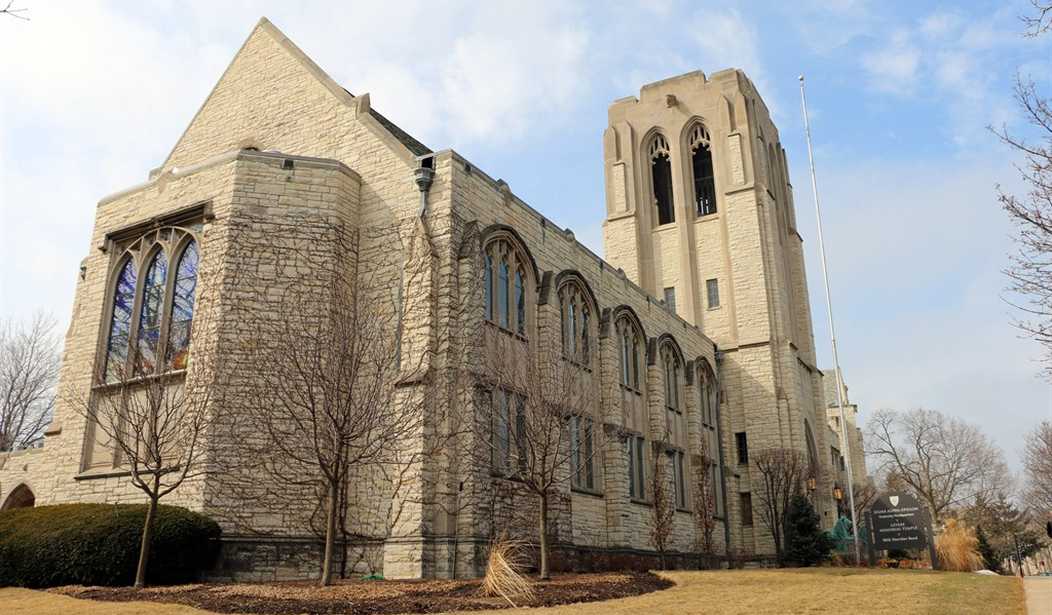Most of the talk you’ve heard about reparations lately has come from California, where grandiose plans for massive reparations payments to Black residents have recently begun disappearing in the harsh winds of reality. Not so in the Chicago suburb of Evanston, Illinois, where Northwestern University is located. They aren’t just talking about reparations. They actually started paying them out. The Wall Street Journal takes a look this week at one of the early beneficiaries of the program and how it’s being organized. To say the least… it’s complicated. And nobody is retiring after getting paid, either.
Louis Weathers still remembers one of his first experiences with racial prejudice in this Chicago suburb along Lake Michigan, home of Northwestern University…
Now 88 years old, the retired postal worker and Korean War veteran is among the initial beneficiaries of a city program—the first of its kind in the U.S.—that pays Black Evanston residents reparations for discrimination and a lack of access to housing. It is also working on programs to address gaps in education and economic development.
In 2019, the city of about 75,000 just north of Chicago committed to spend $10 million over 10 years on local reparations. Dozens of other municipalities across the U.S. have taken initial steps toward reparations since.
Mr. Weathers is one of roughly 140 Black residents who have received a reparations payment. The qualifying individuals are all elderly and were able to show that they lived in Evanston between 1919 and 1969. (That’s when the Fair Housing Act was passed.) The payment for each was $25,000. Don’t get me wrong. That’s a nice check for pretty much anyone not being a tech CEO to receive out of the blue. I wouldn’t turn one down. The city has committed to issuing $10 million in checks over a span of ten years.
To their credit, Evanston isn’t even attempting to link these payments to slavery. Illinois was never a slave state. Prior to achieving statehood in 1818, the territory reportedly had a little over 900 slaves. In the whole state. But a condition of statehood was that they be a free state. Instead, Evanston is basing reparations on a history of “discrimination and a lack of access to housing.” In that sense, this program is far less nonsensical than what’s going on in California and other places because they at least found a mostly valid foundation for discrimination in the lifetimes of qualifying recipients.
I say “mostly” because the program still ignores other aspects of American culture in the first half of the 20th century. In pre-1950 Chicago, Jews faced rampant antisemitism that ranged far beyond people refusing to rent them housing. Chinese immigrants and other Asians didn’t face much better. And the only Italians who made out really well were somehow related to a guy named Capone.
But still, Evanston’s plan is one of the less odious ones you’re likely to read about. And yet, it’s somewhat hilarious how reparations proponents are describing this program as “a test run for the whole country.” (Justin Hansford of the Thurgood Marshall Civil Rights Center actually said that.) Evanston is not “the whole country” and it’s certainly not San Francisco, Los Angeles, or Baltimore. It’s a rather tony community of just 75,000 people and it’s the home of Northwestern University.
The median household income there is almost double the national average, at more than $80K and they pay a lot of taxes. So they have some extra cash to throw around. And they are doling it out carefully to a very small and elderly population, so it’s not costing them much to earn a ton of virtue signaling points.
So reparations are working in Evanston, at least for the moment. Let’s take that model and try to apply it to the South Side of Baltimore. Let us know how that works out.








Join the conversation as a VIP Member